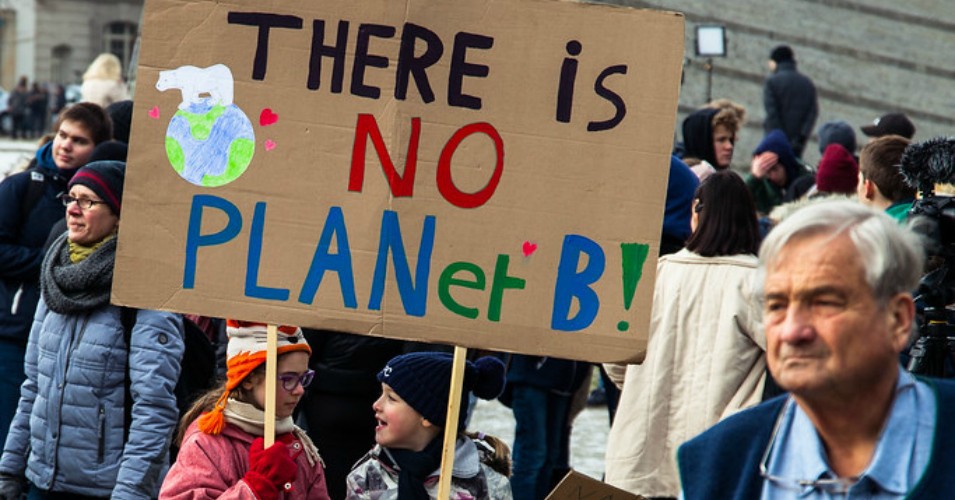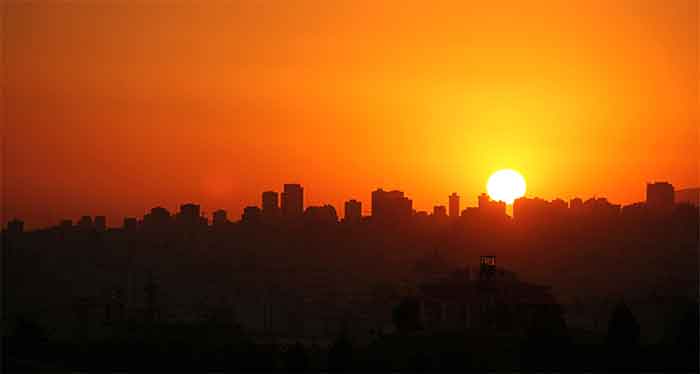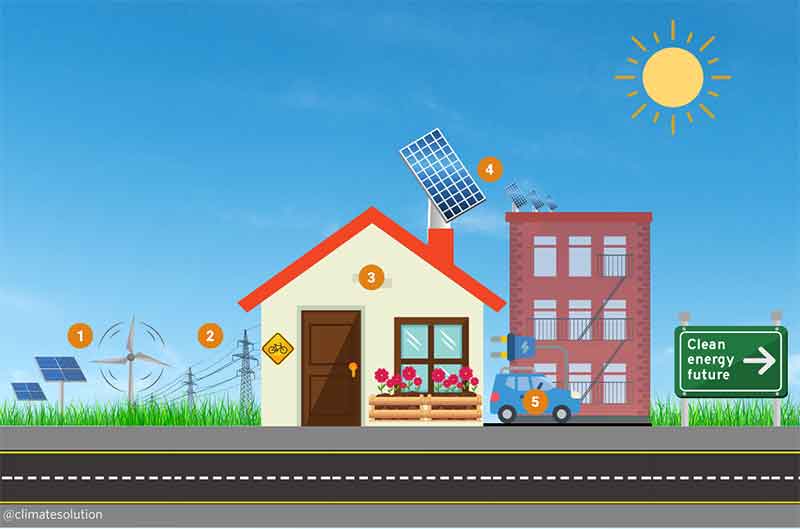
In the discourse on climate change, as the inadequacy of incremental change is increasingly realized, we are now beginning to hear those much needed words more frequently—that much wider changes in economy and society are needed to check climate change effectively. What exactly does this mean?
It is a widely accepted norm of present-day society that people keep aspiring for more and more, or higher level of material goods, services, sensual pleasures and utilities in their life, and seek happiness and fulfillment in this pursuit. This trend has persisted, despite the fact that it is shallow at best and extremely harmful at worst. There is a need to change this thinking to limit this endless consumption. Ideally, by changing social values and behavior, more and more people should be motivated to start placing voluntary limits on their consumption. Having accessed all their basic needs and some of the small comforts dear to them, they learn to happily say ‘enough’ instead of forever asking for more. In particular they make a sincere effort to give up the goods that are known to be harmful for them and others, and/or which require addictive/repetitive although entirely avoidable use, or are non-essential yet known to place a heavy burden on environment.
This will need widespread educational efforts to change widely prevailing social values, a very creative effort which involves families and communities, schools and colleges, spiritual and social organizations. As a result of this many people can take to placing voluntary limits on consumption, and have the liberating experience of being able to find more time and resources for working for welfare of others, for bringing much needed social change, for improving their social relations and for more creative pursuits, all of which can bring more real happiness and fulfillment and make life more meaningful.
However not all people will accept voluntary change and for those who do not, instruments of fiscal and other policies need to be used to curb consumption that is harmful, hazardous, wasteful, involves ‘sin’ goods and high luxury of a few. Policy measures which provide for much more equality in wealth and income will also be very helpful in this context, but this must be accompanied by social campaign to reduce harmful and luxury consumption. Thus by mix of people’s movement for voluntary change and public policy changes, it should be possible to obtain a huge cut in consumption. At the same time, access to basic needs must improve for roughly the bottom one third of the world population but even after allowing for this, it is possible to achieve a huge net cut in the total consumption of goods, services and utilities as well as the GHG emissions involved in this, in a way which is justice-based and sustainable, and on the whole increases the happiness of people instead of making them feel burdened or deprived.
Now that we have a much lower consumption to contend with, the next question is—how should we produce, generate and distribute these goods and services. Clearly the production path should involve more and more use of renewable sources of energy in place of fossil fuels. It is also possible to introduce even bigger systemic changes which replace GHG emissions with absorption of carbon dioxide, the biggest possibility being in agriculture and related activities, where the technologies are already available to a large extent with the people themselves (although further improvements, very creative ones, are always possible (the agro-ecology approach, rooted in traditional wisdom of small farmer communities). Regeneration of degraded forests, pastures, wetlands and water sources by community action is another important area where work with people’s involvement can give very good results.
In addition a general principle should be to produce as close to the source of consumption as possible, to the extent possible and practical. All non-essential transport over vast areas should be avoided.
Rural communities which can be self-supporting or self-reliant to a large extent should be particularly supported by policy. The view that progress is necessarily linked to increasing urbanization should be discarded.
Small production units which produce mainly for the local market should be encouraged by policy in various ways. At the same time corporations which involve highly polluting and wasteful transport and assembling over vast areas should be discouraged and taxed heavily by policy makers. All this will also lead to creation of many more highly creative and satisfying as well as sustainable jobs.
People should be motivated and trained, by behavior change as well as policy, to generate minimum waste and to recycle and treat it close to the place of waste generation with community effort. This highly decentralized approach will avoid most waste generation and transport, ridding us of methane emitting huge landfills, highly energy intensive treatment facilities and river pollution. At the same time policy measures can reduce huge wastage involved in packaging and hazardous products.
An essential component of social change is a peace effort at all levels from communities to nations, from families to international affairs. While at community level this leads to a big reduction in guns and ammunition and gun-violence, at international and national levels this leads to minimization of wars, militarization, and arms race as well as elimination of all weapons of mass destruction. No unemployment will result as people in military will merely be shifted at the same salary to more work in disaster prevention and rescue as well as ecological rehabilitation of ravaged areas, as also peace missions whenever needed. As war and militarization involve so much GHG emissions, this can become the biggest single source of reducing GHG emissions, along with other sources suggested above.
Such changes will reduce GHG emissions and improve adaptation in the context of climate change in a big way, but in addition these will also help to tackle most other serious environmental problems as well reduce other big (or even bigger) threats, help in achieving various sustainable development goals, improve prospects of justice and peace, generate much more creative and satisfying livelihoods, and add to happiness, creativity and sense of fulfilling, meaningful human life.
Bharat Dogra is Honorary Convener, Campaign to Save Earth Now. His recent books include Planet in Peril, Protecting Earth for Children and A Day in 2071.
















































